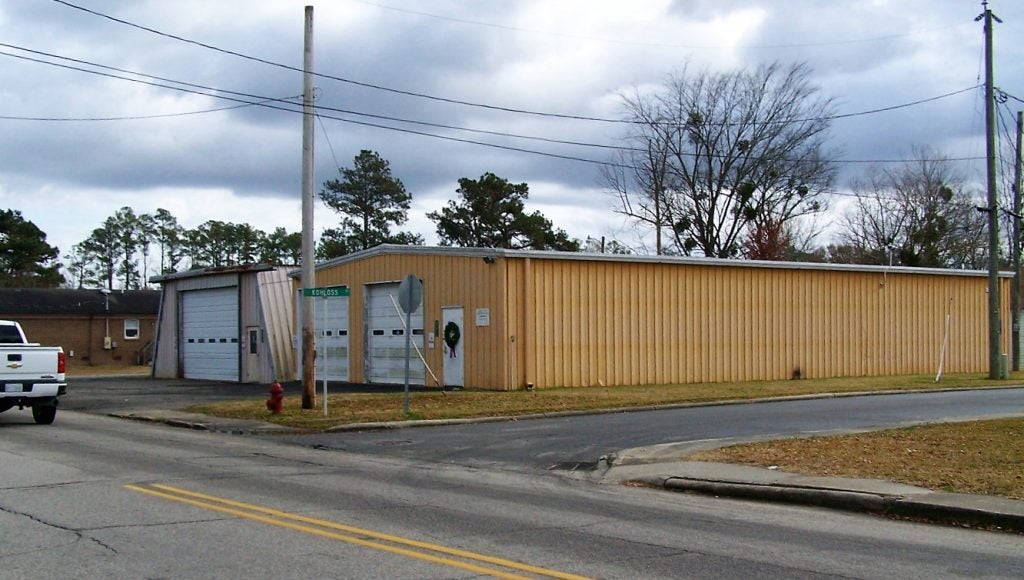Disaster Recovery Program closed by Golden LEAF Foundation
Published 10:59 am Thursday, January 4, 2018

- THE TYRRELL COUNTY MAINTENANCE GARAGE at Main and Kohloss streets in Columbia, once the fire and EMS stations, was flooded most recently during Hurricane Matthew October 8-9, 2016, and a state grant has been awarded to relocate the Maintenance Department to a new building above the floodplain. (R. McClees photo)
The Golden LEAF Foundation recently closed out the $55 million Disaster Recovery Program funded by the North Carolina General Assembly after last year’s hurricane and tropical storms.
Golden LEAF has supported 74 projects for community needs including the repair or replacement of public buildings, equipment, and infrastructure; new infrastructure to serve new housing developments; and loan capital to support small business recovery. The Foundation was able to allocate all disaster recovery funding in less than a year.
Tyrrell County received $366,000 for relocation of the county’s maintenance garage across Main Street from Madge L. VanHorne Auditorium.
“In its current location, the maintenance garage is inaccessible during significant rain events due to flooding,” the county’s application read. “As a result, vehicles and other critical equipment must be moved prior to a storm event or remain inaccessible until waters recede.”
Golden LEAF disaster recovery grant funds will support relocation of the County maintenance garage to county-owned land out of the floodplain.
Hurricane Matthew was one of the costliest disasters in the state’s history, claiming 31 lives, displacing thousands of North Carolinians, and causing $4.8 billion in flooding damage alone.
The General Assembly’s response was legislation to support disaster recovery that included a total of $55 million appropriated to the Golden LEAF Foundation.
This task was within Golden LEAF’s capabilities because of its deep relationships with the communities that suffered the most. The Foundation was asked to process applications and distribute disaster relief funding to qualified grantees quickly and efficiently without duplicating the efforts of other funding resources.
Within months, the Foundation hired experienced staff, conducted outreach meetings with local officials through partnerships with the North Carolina Association of County Commissioners and North Carolina League of Municipalities, developed and distributed grant application forms, coordinated with various state agencies, and visited project sites across eastern North Carolina. The service was provided without charging administrative costs outside the scope of the Foundation’s traditional operations. The first grants were made in April 2017.

